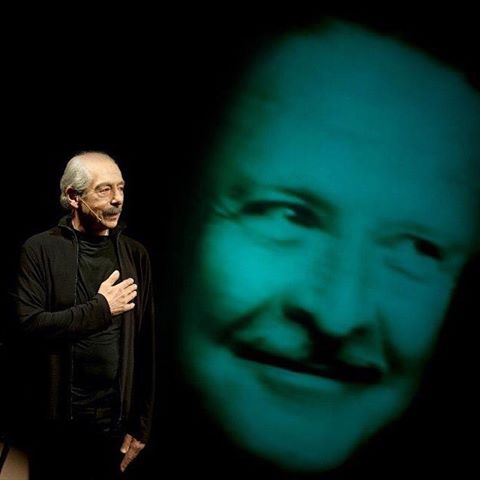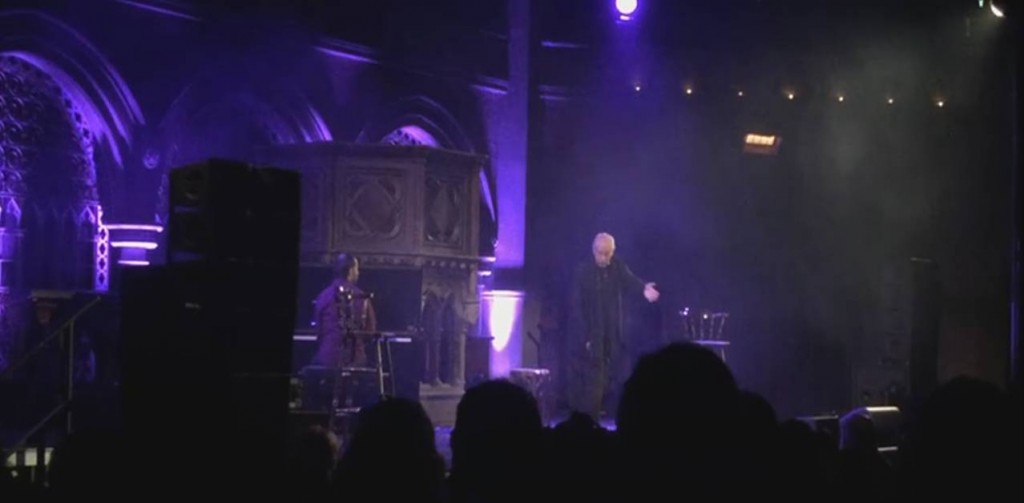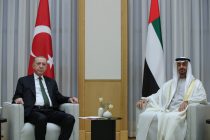On a bitterly cold January evening, I walk with trepidation towards a grand, imposing church.
Why trepidation? Because I know the temperature inside this magnificent venue is not going to be that different from the outside; I spent many hours trembling inside Union Chapel attending union meetings.
The choice of the venue is perhaps anathema to the subject of the event tonight. One thing I am absolutely certain though. Not long after I enter this building of ‘God’, what I witness will warm me up no end.
Genco Erkal. This is who I have come to see. A giant among men. A phenomenal actor. One who has ensured Nâzım Hikmet Ran, an icon of poetry, struggle and suffering, forever stayed in the forefront of our minds.
It’s thanks to Erkal and singer-songwriter Zülfü Livanelli that the ‘man (and woman) on the street’ has come to know Nâzım well. Livanelli through his timeless songs (and to a lesser extent, Cem Karaca and Fazıl Say too), and Erkal in his numerous plays.
I last saw Genco Erkal when he was performing at the prestigious Royal Festival Hall. It was another bitterly cold evening I remember, over 20 years ago. Surprisingly he looked exactly as I remember him on that magical evening, if a little more aged. Years have not been too cruel to him.
[The veteran actor, now aged 78, sharing his excitement at performing at Union Chapel, Islington, on Facebook as he poses outside & also checks the stage inside this Grade I listed building]
In defiance to his advance years (nearly 80), his energy level was amazingly high. His rich, baritone voice at times broke into song, delighting the packed Gothic Church.
Tülay Günal, the award-winning theatre actor, ably accompanied Erkal with her beautiful velvet voice. She took us years back, singing the arrangements of some of Nâzım’s well-known poems and reading his prison letters to his beloved wife, Piraye.
Yiğit Özatalay, the musical director for the night, played the piano and was also excellent with his arrangements. The trio entertained, enchanted and saddened the captivated audience for over an hour.
We felt the deep sadness, concern and anxiousness Nâzım had felt for Piraye Hanım deep in our hearts. So vivid was his anger, that we also felt it: his anger at the state of his country, and of the hands of imperialist powers.
We had the honour of being branded ‘traitors’ alongside Nâzım, in line with his description of the meaning of this word.
“Which is furthest away: my country, the stars or my youth?”
Those people in the audience who arrived in the UK from Turkey in during the 70s to the late 80s as asylum seekers perhaps asked themselves the same question, captured by Nâzım in his timeless poem: “Which is furthest away: my country, the stars or my youth?”

Perhaps all who consider themselves in exile, forced or self-imposed, should ask themselves the same question.
Many in the audience no doubt drew a parallel with goings-on in their beloved Turkey. Of course, Genco Erkal and politics go hand-in-hand, so it would have been unthinkable for him not to mention the current situation in Turkey.
Referring to the discussion on the proposed changes to the political system in the country, he uttered these words right at the end, when bowing to his admiring audience: “Let us say NO once more and let our voice be heard in Turkey.”
This, in ear splitting unison, we all said: “HAYIR! HAYIR! HAYIR!” (NO! NO! NO!”)
At the end, trepidation turns into euphoria, and off we go into the cold Islington night. Bars and restaurants on Upper Street I am sure were full of people excitedly discussing the momentous event they had just witnessed.
Alas, I have a long way to go to reach my residence in suburbia.





